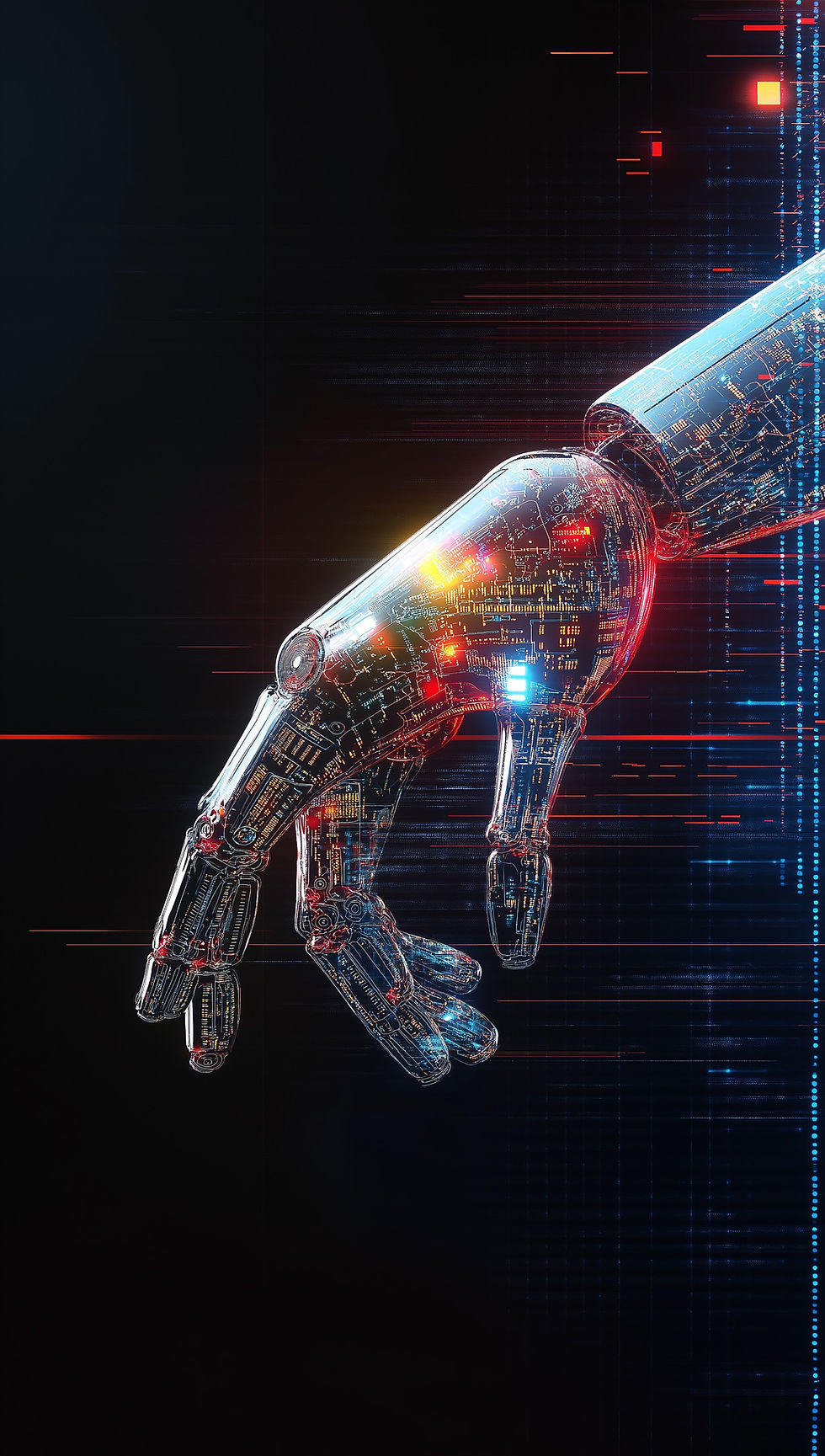The Future of Project Management: How AI is Transforming the Role of Project Managers
- Ian Fisher
.png/v1/fill/w_320,h_320/file.jpg)
- May 6, 2025
- 3 min read
Artificial intelligence (AI) is rapidly reshaping industries, and project management is no exception. Understanding how AI, specifically generative AI, is transforming the landscape is crucial for project managers to stay ahead. This shift involves more than technological advancements. It also changes how project managers adapt and redefine their roles in an AI-driven world.

Generative AI Overview for Project Managers
Generative AI can create content, insights, and predictive models and streamline project workflows. Tools like ChatGPT and Gemini assist project managers in brainstorming, summarizing meetings, and generating reports at unprecedented speed. These AI tools for project management automate routine tasks, allowing managers to concentrate on strategic decision-making and stakeholder engagement. Generative AI can support these functions, but project managers must develop strong prompt engineering skills to maximize the benefits of AI assistance in these areas.
A basic and typical user prompt might be: “List the top five risks for a parking garage renovation.” This simple prompt yields a simple answer. To maximize your results, use a well-crafted prompt structure for AI, which should contain:
1. Objective: Clearly state what you want to achieve
2. Context: Include any relevant details.
3. Constraints/Requirements: Any limitations or prerequisites
4. Desired Output: Specify the format you would like as your output.
This applies to prompting of all kinds, not just project management topics. Here’s an example of how it works:
I am a project manager for a parking garage renovation project attached to a condo. We have a team of 5 people approving various parts of the project by vote. We are in the planning phase and recently requested and received bids from several vendors. Our scope and schedule are locked in and on pace, but we are having trouble finalizing the risk assessment. Could you outline the top 5 potential risks for this type of project, suggest strategies for them, and tell me the probability and impact, specifically relating to the budget and schedule? The project has to be completed by December 2025, and the stakeholders want to track risks on a centrally located risk register.
1. Objective: Identify the risks and develop a risk register
2. Context: Team size, project timeline, and type, phase
3. Constraints: Specific reporting needs and a focus on the schedule and budget
4. Desired Output: Requests specific strategies and the probability and impact of the top 5 risks identified
Would you like to see this result from ChatGPT? Click here!
Project Management Automation and AI Tools
AI tools for project management automate critical aspects of scheduling and resource allocation. Platforms like Asana AI, Monday.com AI, and Trello Automation handle task tracking and deadline management, while Microsoft Copilot and Google Duet AI assist in drafting documents and analyzing data. These artificial intelligence tools are being “bolted on” to almost any software to automate the collection and analysis of huge quantities of data. Data visualization tools like Tableau AI and Power BI AI enhance forecasting accuracy, providing project managers with real-time insights that enable faster and more refined decision-making processes.
Will AI Replace Project Managers?
A common concern is whether AI will replace project managers. While AI excels at automating repetitive, process-heavy tasks such as status reporting and scheduling, it lacks the emotional intelligence necessary to manage teams, navigate office dynamics, and negotiate priorities. Automation in project management will reduce the need for some administrative roles, but human leadership remains irreplaceable. Even when artificial intelligence is used to translate languages in real-time, project managers and their teams still require the ‘human touch’ to foster collaboration. The best project managers will leverage AI to enhance core team functions rather than replace them.
Balancing AI and Human Leadership
The future of project management lies in balancing AI-driven insights with human judgment. While AI can predict risks and optimize resources, it can’t build relationships or make ethical decisions. To get the most out of AI tools, project managers must cultivate data literacy to accurately interpret AI-generated insights and develop prompt engineering skills. Change management will also be essential, as the adoption of AI solutions often meets resistance within teams.
Conclusion
Artificial intelligence is transforming project management, offering tools that automate routine tasks and provide valuable insights. However, AI won’t replace project managers; rather, it will empower them to lead more strategically. Project managers can thrive in this evolving landscape by embracing AI tools for project management and focusing on leadership skills that AI can’t replicate. The key is using AI as an assistant, not a replacement, ensuring that the human element remains at the heart of successful project management.




Thanks. That´s amazing how fast technology changes.